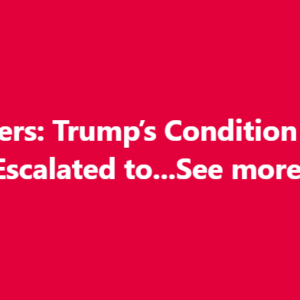Six women who say they were trafficked by Jeffrey Epstein or Ghislaine Maxwell came forward in Washington, D.C., with a powerful, unified appeal: release more federal files connected to Epstein’s decades-long crimes and hold accountable those who enabled him. But their appearance, organized in part by NBC News, also carried an unexpected twist — the women refused to endorse unverified claims tying former President Donald Trump to Epstein, a move that undercut the media narrative some outlets had hoped to build.
The Survivors Speak
The women — Jess Michaels, Wendy Avis, Marijke Chartouni, Jena-Lisa Jones, Lisa Phillips, and Liz Stein — stood together at a panel discussion that also included relatives of Virginia Roberts Giuffre, one of Epstein’s most high-profile accusers. Giuffre, who had been a central figure in exposing Epstein’s trafficking network, died by suicide in April, a loss that still reverberates among survivors.
Each of the women described not only the personal toll of Epstein’s abuse but also the systemic failures that allowed him to operate for so long despite repeated warnings and investigations.
“Epstein was a master manipulator,” Michaels said, recalling how she was raped in 1991 when she was 22. “That was a strategy that was honed. No young woman, no teenage girl had a chance — not a chance against his psychopathic skills.”
Michaels explained that she chose to come forward publicly after years of silence because of what she called a “severe miscarriage of justice.” Despite convictions and settlements, she argued, true accountability remains elusive.
Calls for Transparency
Across the board, the women urged the Justice Department to release investigative files tied to Epstein and Maxwell. Many of these documents remain sealed, sparking speculation about who else may have been complicit, whether by active participation or willful silence.
Lisa Phillips emphasized that survivors have a right to know what the government uncovered:
“We haven’t been protected, and we haven’t been kept informed. The survivors deserve the truth, not just partial answers.”
Liz Stein echoed the same point, arguing that selective disclosures fuel conspiracy theories and deepen public distrust. “Every day there are headlines about Epstein. But the people who lived through this deserve to see the whole record, not just bits and pieces filtered through lawyers or politicians,” she said.
Their demands coincided with a new release by the Republican-led House Oversight Committee, which unveiled more than 33,000 pages of documents tied to Epstein’s finances, flight records, and correspondence. Lawmakers in both parties have supported greater transparency, though partisan divides often shape the framing of the issue.
Refusal to Play Politics
The most striking moment of the panel came when NBC interviewers pressed the women on whether they believed Trump should face additional scrutiny over his past social connections to Epstein. Epstein, a financier with deep ties to celebrities, academics, and political figures, had famously socialized with both Trump and Bill Clinton in the 1990s and early 2000s before facing his first prosecution.
But the survivors would not provide the soundbite NBC appeared to seek. Instead, they rejected speculation and unverified claims.
“There were many, many adults around [Epstein’s] properties that may not have participated but very clearly knew what was going on,” said Jena-Lisa Jones, who says she was first abused by Epstein at age 14. “And they’re not saying anything, and why are they still not saying anything? That’s the real issue. Pointing fingers without evidence isn’t the same as truth.”
Wendy Avis, who also alleges she was abused at 14, agreed. Speaking publicly for the first time, she explained: “This isn’t about partisan politics. It’s about justice. Not everybody is getting justice, and that’s not right. The everyday person is out there, and that’s me. We’re victims. We’re not props for someone’s agenda.”
By refusing to endorse unproven claims, the survivors placed the focus back on systemic accountability rather than political score-settling.





